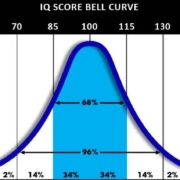The U.S. Department of Education’s (DOE) Office of Special Education and Rehabilitative Services (OSERS) released guidance on School Discipline for Children with Disabilities on August 1st. The Individuals with Disabilities Education Act (IDEA) requires that in the case of a child with a disability whose behavior impedes her learning or that of her peers, the School District must use positive behavioral interventions and supports to address the behaviors if it is necessary to do so to provide the student with a Free Appropriate Public Education (FAPE). Children with disabilities are far more likely to receive disciplinary removals that significantly interrupt their learning.
The DOE found that many children with disabilities may not be receiving appropriate behavioral interventions or supports. The DOE found that during the 2013-14 school year, 10% of all children with disabilities between the ages of 3 through 21 were subject to a disciplinary removal of up to 10 days during that school year, often for violations of “Codes of Student Conduct.” For more discussion on issues with Codes of Student Conduct, see my prior post. The DOE points out that the authority of Districts to remove students for disciplinary reasons “does not negate” their responsibility to consider the implications of the child’s behavioral needs and the effects of suspensions on the child’s FAPE. The Guidance Letter described several alternatives to disciplinary removal which schools should consider. Parents should remember these when dealing with schools regarding their child’s behaviors. Furthermore, “exclusionary disciplinary measures” that are not considered to be a removal (e.g. detention) may also indicate a need to review and revise the child’s IEP.
Do not let your child’s District claim that “positive behavioral interventions and supports” only apply to children with certain disabilities. That is just not true. They apply to any child with a disability. This is all the more important when a pattern of the child’s misbehavior and classroom disruptions is apparent or can reasonably be anticipated based on the child’s present level of performance and needs. When this occurs, the IEP Team must consider which aspects of a child’s IEP related to behavior need to be addressed or revised and, if behavioral supports are already in effect, whether they should be changed. As a Yonkers Special Education attorney, I have given presentations on this.
Interventions and supports which may be useful include:
Instruction and reinforcement of school expectations;
Violence prevention programs;
Anger management groups;
Counseling for mental health issues, life skills training, or social skills instruction;
Meetings with a behavioral coach.
Generally, children with disabilities may not be placed in more restrictive settings solely due to their behavior. They may only be removed from the regular education setting when the nature or severity of the disability is such that education in a regular class with the use of supplementary aids and services is not possible. It’s important to point out that “supplementary aids and services” are not just limited to ensuring that children with disabilities be educated with their nondisabled peers “to the maximum extent appropriate” in only “education-related settings.” This requirement is required for extracurricular and nonacademic settings as well.
Failure to ensure that children with disabilities receive the behavioral supports needed to enable them to make appropriate progress toward meeting their IEP goals may constitute a denial of FAPE. We’ll discuss a few indicators of a possible FAPE violation.
Did the IEP Team consider positive behavioral interventions and supports in response to the improper behavior(s)?
Did the school schedule an IEP meeting to address behavioral concerns upon parental request?
Did the IEP Team discuss the parent’s concerns about their child’s behavior?
Were the behavioral supports in the IEP appropriate?
Are the behavioral supports in the IEP being implemented?
Did teachers receive appropriate training (if necessary)?
Is the school using behavioral supports which are not on the child’s IEP?
Research has shown that suspension from school does not deter misbehavior. Suspensions are found to lead to lower academic performance. Often the child will fall behind, become disengaged from school, and drop out. As always, Parents must be their children’s advocates.
Feel free to Contact me if you have specific questions.
#disciplinaryremovals #schooldiscipline #OSERS #positivebehavioralinterventions #detention #exclusionarydisciplinarymeasures #codeofstudentconduct







